Pierce The Veil's Jaime Preciado: my top 5 tips for bass players
"When you see a great band, nine times out of 10 it's because the drummer and bass player are solid"
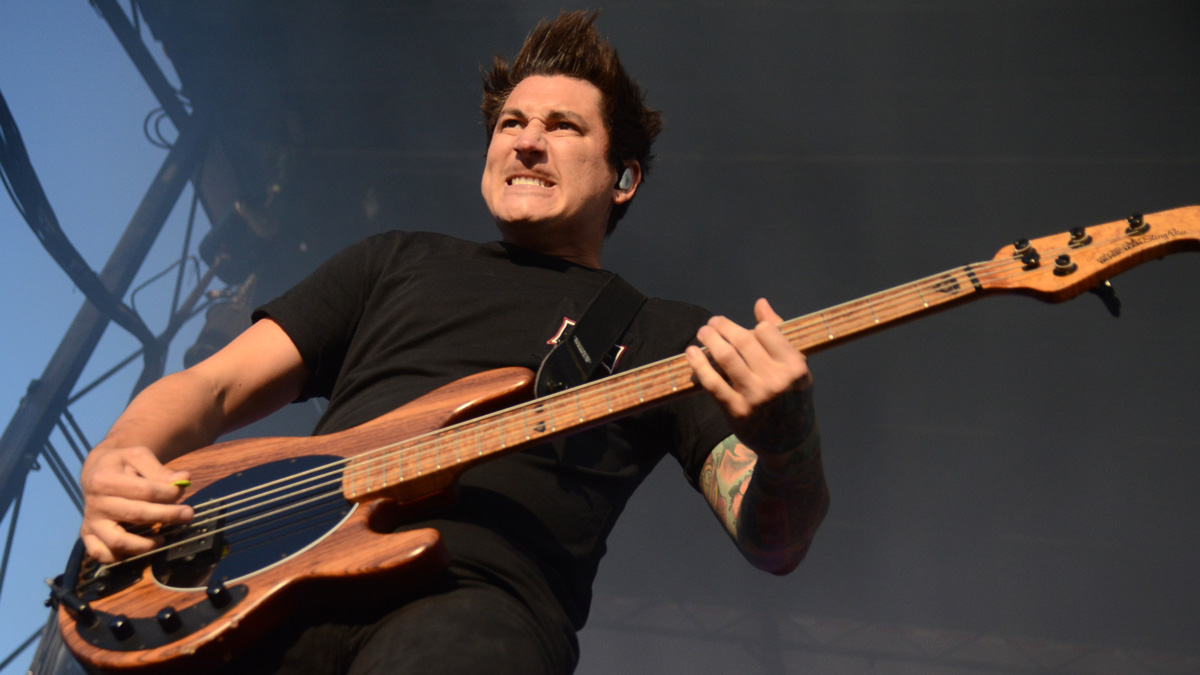
“I’m one of those guys that is a guitar player playing bass,” Pierce The Veil’s Jaime Preciado responds when we ask him to share his top tips for fellow bassists.
“Some of my friends play bass the proper way and they are so good,” he laughs. “I just try to play as well as possible without going over the top.”
For someone who came to bass as a second instrument (well, third actually - more on that later), we’d say Jaime is doing a pretty darn good job. His band hit the top five back home and the top 20 in the UK with their latest album, 2016’s Misadventures, and as we see shortly after our interview, live they are a frighteningly tight outfit. It seems that may have something to do with Jaime’s move from guitar to bass…
“I try to be as tight as possible,” he says. “For me, I never understood that until I started playing bass. When you have a good rhythm section, that can change the whole vibe of the band.
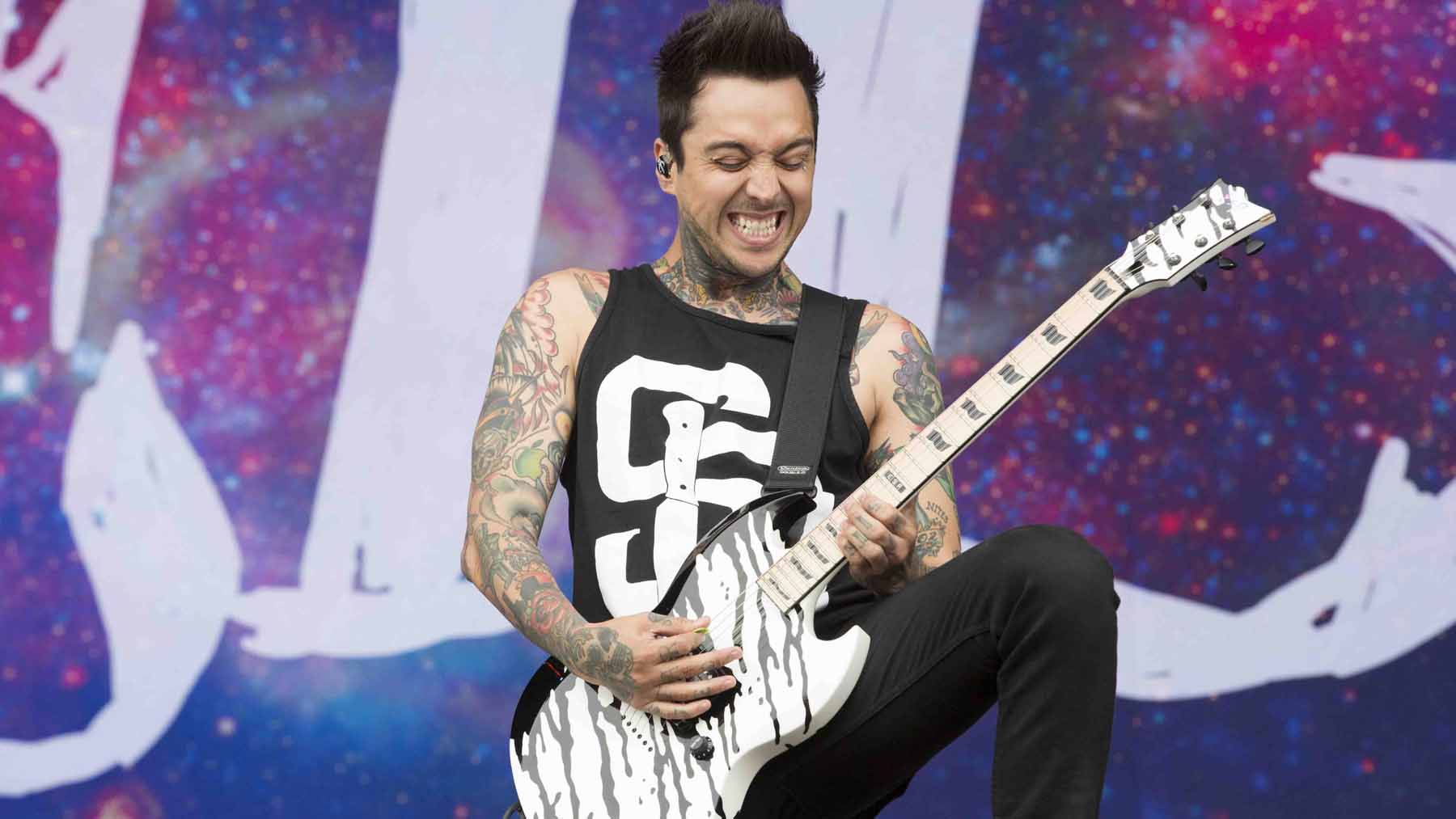
Pierce The Veil's Tony Perry: the 10 records that changed my life
“When you see a great band, nine times out of 10 it's because the drummer and bass player are solid. A lot of people don’t realise that, and they say the singer is great and the guitar player is incredible, but that band would not sound like that without a solid backbone from the rhythm section.
“As a rhythm section, you are the foundation of the song and a lot of people don’t realise that. When I first started playing bass, I was trying to do things on bass that I would do on guitar. I would watch videos of us and it didn’t sound right at all; something was missing and I realised it was because I was trying to play guitar on bass.
“On bass you have to take a backseat role, but it's so important. Now that I understand that role and the fine line between going over the top and being solid we can play with that and have fun with it.”
So it turns out that the guitarist-turned-bassist has learned plenty of lessons along the way and may just be the ideal person to ask for his top five tips for bass players. You can judge for yourselves…
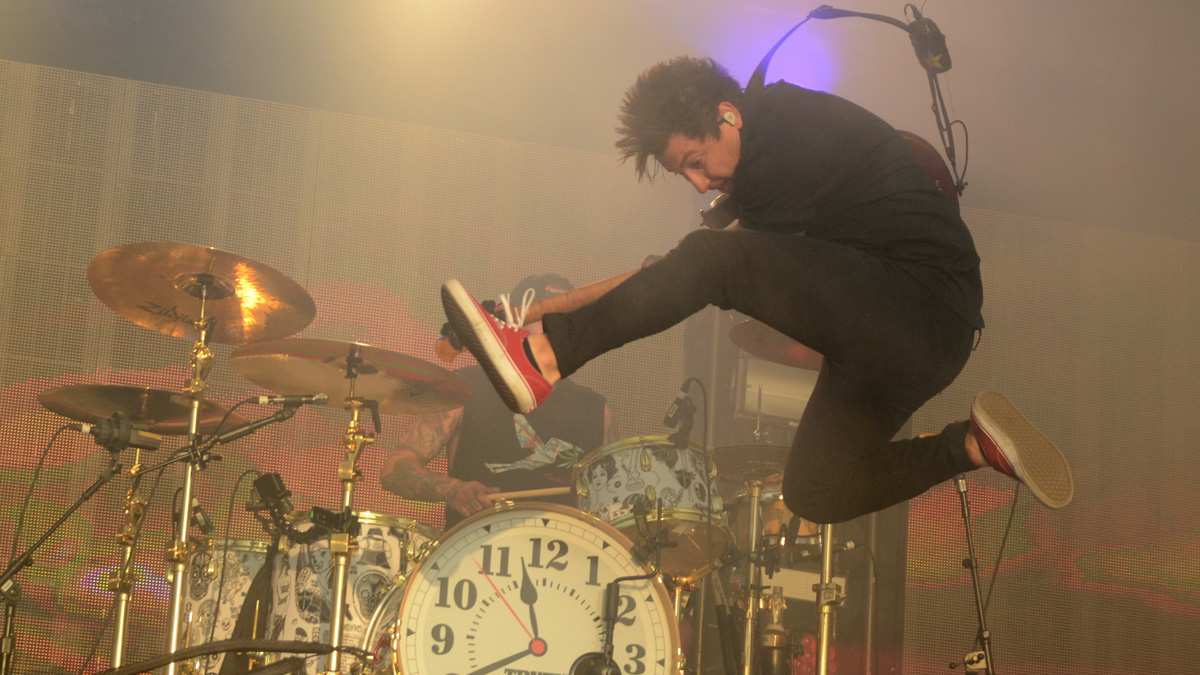
1. Get out of the bedroom and into the rehearsal room
“You need to play with as many musicians as possible. That really helps when you're starting out as a bass player.
“When we were starting out, I personally tried to play with as many people as I could, and you should also play as many instruments as you can.
“I started out playing trumpet. I learned to read music and all of that stuff. I changed to guitar because my uncle was like, ‘You’re not going to pick up chicks playing the trumpet.’ To be fair, he was right.
“He gave me his old guitar and I was in a bunch of bands in school before switching to bass to join a hardcore band. That band fizzled out and then we started Pierce The Veil.
You need to surround yourself with people that love to play music, surround yourself with that positivity. Even if you're all terrible then you can all progress and grow together
“I learned so much playing with those different musicians and playing those different instruments. It helped me know where a guitar player comes from rather than just being a bass player.
“You need to surround yourself with people that love to play music, surround yourself with that positivity. Even if you're all terrible then you can all progress and grow together. If you surround yourself with music it opens your eyes and opens up your creativity and takes it out of your comfort zone.
“You can have a studio on your laptop now and I think that's great, but there is something to be said about having a couple of guys in a room jamming ideas out and going with feel rather than sitting at a computer.
“We are losing that art form of jamming things out and learning what sounds cool that way rather than writing on a computer to a fake drum beat. Technology is so advanced now, though, that someone can come up with a skeleton idea on the computer and then we will jam it in our rehearsal room and build it up from there.”
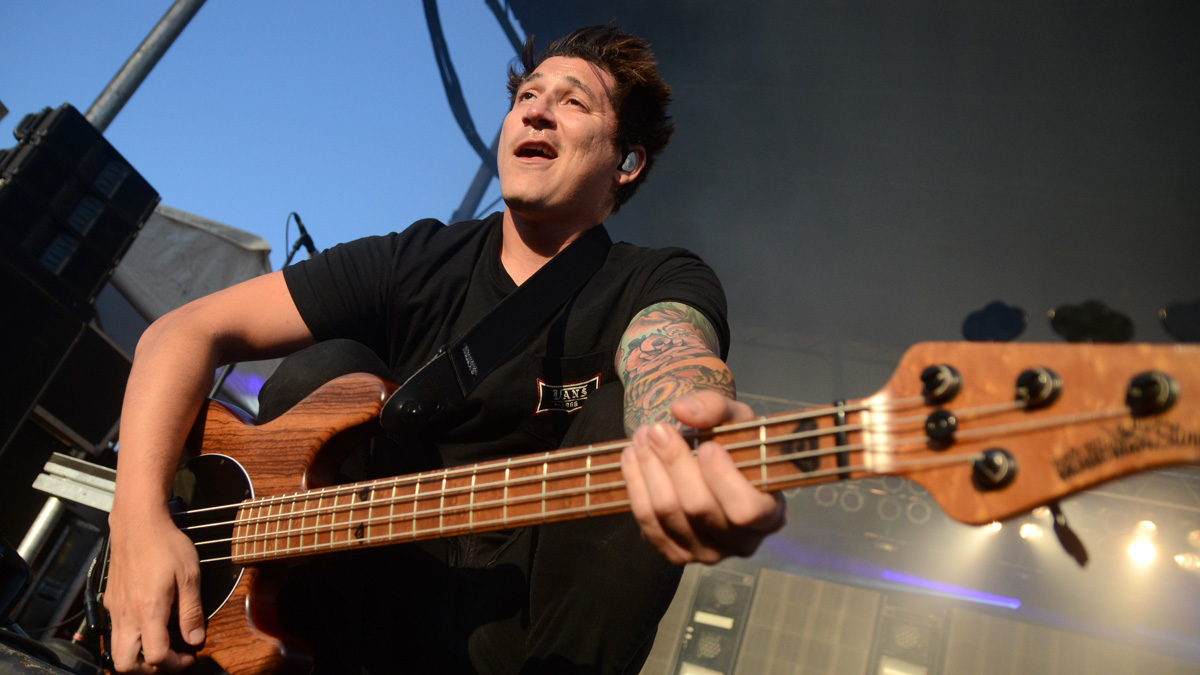
2. Educate yourself before recording
“I went to school for audio production and I love being in the studio. Having learned a lot about audio production has really helped me.
“Having your shit together is the biggest thing for when you’re recording. Having as much done as possible before you get into the studio is very important. Otherwise you’re just wasting time and money.
Having as much done as possible before you get into the studio is very important
“You’re not being creative; it can damage the creative process because you get burned out and frustrated. I wish I could go back to when I first started playing bass and tell myself how important it is to be fully prepared. You need to be overly prepared. Do all of the jamming before you get into the studio.
“Having knowledge about the studio helps live as well because it means we can bring that studio aspect into our show and create stuff on the fly without having to go outside of just the four of us.”
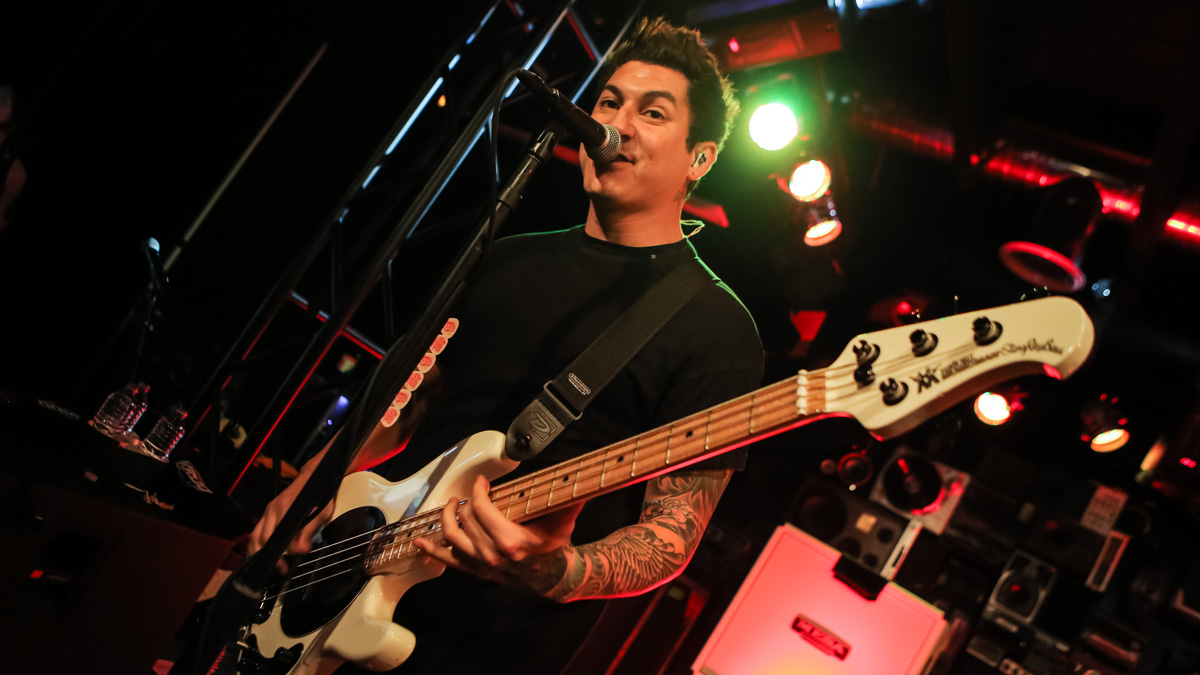
3. Be ego-less
“One of the tracks on our new record is called Texas Is Forever and it started with this cool bass riff.
“We recorded it and our producer asked to try the bass riff on guitar. I was open to it and we tried it and it sounded better so the cool bass riff moved to guitar.
“That is an example of doing the best thing for the song: I lost that cool bass riff, but it was the best thing for the song. The ego has to be checked at the door.”
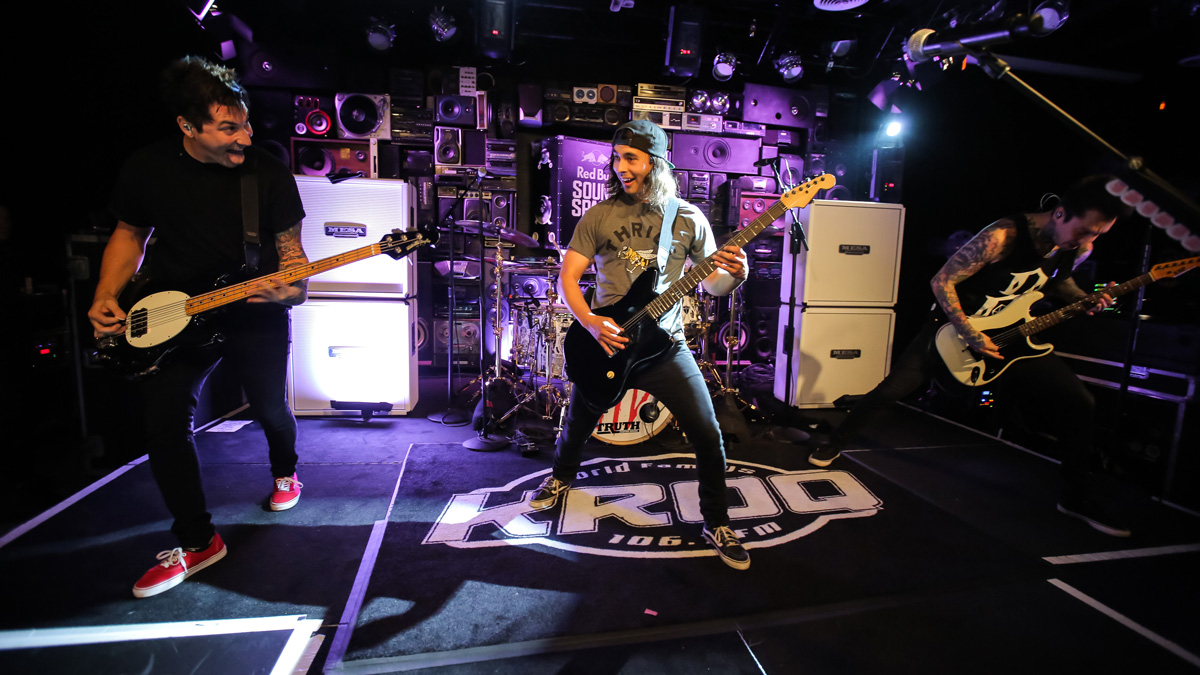
4. Don’t judge gear by its appearance
“When we recorded our last two records, I took the bass setup that I used and I made it into a portable rig.
When we first used it in the studio I was laughing at our producer. I was like, ‘What are you doing?!’ He told me just to listen to it, and it sounded incredible
“Now I have a rig in the UK and one at home and it's exactly the same. It's this mini VST Ampeg amp. It's super-small. When we first used it in the studio I was laughing at our producer. I was like, ‘What are you doing?!’ He told me just to listen to it, and it sounded incredible.
“It was just that amp with a couple of preamps and a distortion pedal. It sounded so good so we built a custom case of it and it's become my bass sound. It’s three different channels for three different sounds to combine into one.
“It's unique. I don’t care what it looks like as long as it sounds good. People make an album on their laptop today and it can sound like it was made in a $100,000 studio. As long as it sounds good, that’s the most important thing.”
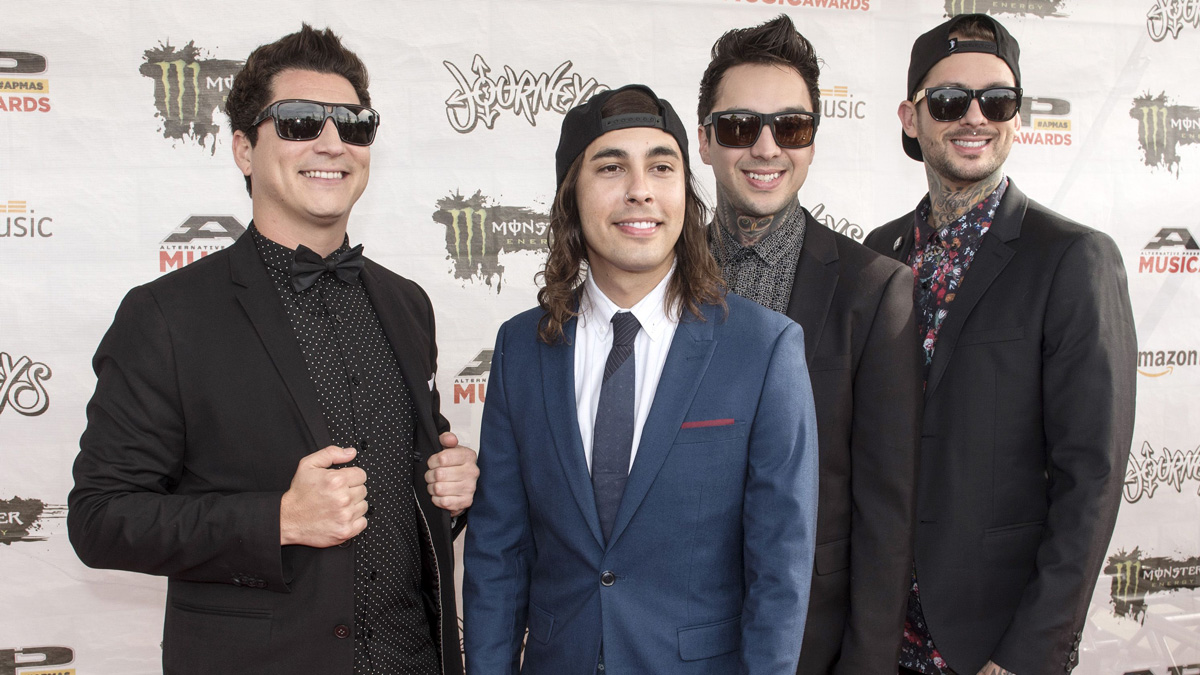
5. Find the right gear… even if it might break you
“I’ve worked closely with Ernie Ball on my bass, and they've been very good to me. I’ve made four different custom basses with them.

Pierce The Veil's Tony Perry: the 10 records that changed my life
“They’re so punk-rock. I remember watching MxPx back in the day and Mike Herrera would always rock those big, bright basses, and I loved them. They’re big basses; I love how heavy and thick they are. They feel like they could break you.
“I love Fender to death but those bodies are so frail-looking. If I gave someone else my bass, they might think it was hard work because it's so heavy, but I’ve been playing these for 10 years. Different bass players have different signatures and you need to just find what works for you.
“I know Ed [Breckenridge] from Thrice was a Gibson Grabber guy, and I tried one and thought it was crazy, but it worked for him.”
Rich is a teacher, one time Rhythm staff writer and experienced freelance journalist who has interviewed countless revered musicians, engineers, producers and stars for the our world-leading music making portfolio, including such titles as Rhythm, Total Guitar, Guitarist, Guitar World, and MusicRadar. His victims include such luminaries as Ice T, Mark Guilani and Jamie Oliver (the drumming one).
